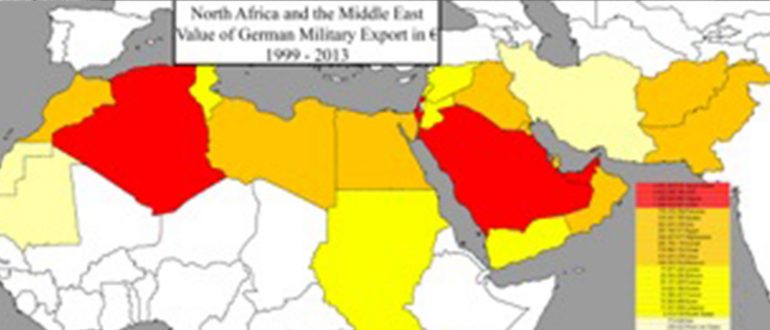Is the decline of the US inevitable?
The post-Cold war US has been suffering from a ‘psychological stagnation’. This kind of stagnation doesn’t necessarily imply the inability to make progress, but the inability to get the rid of outdated ‘habits’. Those habits have implications for the status of the US as a single global super-power.
The Soviet Union, intentionally or unintentionally, you like or dislike was a stabilizer in the world. The West did a lot of good and positive for domestic and international communities to prevent from inclinations towards the Soviet Union and communism. Failures were left unattended and often written off to the struggle against ‘evil’ Soviet threat while successes were immediately appropriated by the west. Finally, it happened. The Soviet Union went off… many expected the Soviet collapse to be the start of a new happier and better life. Did this life come through? To answer it, we have to take a look at what followed the collapse of the Soviet Union. Post-Soviet countries suffered economic crises, armed conflicts, rampant corruption and bribery, confusion, and a long list of regrettable plights. ‘That is due to the soviet legacy’ was an immediate and easily predictable explanation from the West. The West took the opportunity arising from the vacuum of the Soviet Union, boomed economically and strengthened its political dominance in 1990s. However, that dominance didn’t last long. Emerging economic powers in particular China as well as India, Brazil, Turkey and others continuously gain more economic importance. Then, post-soviet countries particularly Putin’s Russia proved to be resilient. The post-socialist world recovered.
What was the US-led West doing in the wake of the collapse of the Soviet Union? Western progress following the Soviet failure was an inevitable outcome or a functional necessity of global developments. Despite the end of the Cold War, US administrations’ worst failure seems to be the inability to get out of the ‘cold war mood’. Only the target changed. It had been the Soviet Union and Communism. It became Saddam’s Iraq; then, Al-Qaeda and the Taliban and an old enemy – Iran. Furthermore, the US seems increasingly concerned about Russia and China as well as growing regional powers like – western style Muslim democracy – Turkey. The on-going Arab spring might also fit in the above list of targets as the US has decades-long problems with Qaddafi’s Libya or Assad’s Syria. Besides, the United States’ Syria plan might represent a ‘warm-up’ exercise for the anti-Iran efforts. Although the Cold War was conducted by extensive use of non-military means i.e. soft power tools or conducted through indirect warfare, the post-Cold War era saw huge direct military actions by the US and its allies particularly in Iraq and Afghanistan. These engagements consume or waste tremendous amounts of resources, and have a significant impact on the life of ordinary Americans. To get their support, White House administrations build monstrous images of the ‘targets’. And guided by the idea that ‘hope never dies’, they fed ‘hope’ to the American people that a more prosperous and secure life will be achieved once the enemies of the United States have been eliminated. But people couldn’t pay their bills with ‘hope’. Trillions of taxpayers’ dollars generously and enthusiastically has been pumped into military campaigns in Iraq and Afghanistan. Naturally, that led to major cuts in domestic expenditures and projects in the US and an ultimate drop in people’s incomes. Decreased incomes trigger clients’ inability or failure to pay. Even if the wars in Afghanistan and Iraq did not cause the financial crisis but they amplified its effects largely.
Historic evidence seems to suggest that US governments always looked for outside targets to fight such as the British Empire, Soviet Union and Communism, Hitler’s Germany, Castro’s Cuba, Islamic Iran, Gaddafi’s Libya, Saddam’s Iraq, the Taliban’s Afghanistan, Al-Qaeda’s Islamic fundamentalism, Bashar’s Syria and so on. US administrations sometimes seem to seek such targets to divert Americans’ attention from domestic problems to outside threats. This search seems sometimes to even imply manipulation. For instance, Saddam’s notorious image was manipulated to make the case for inevitability of military action against Iraq in order to prevent the development of Iraq’s alleged nuclear program. But later developments showed that in fact there was no indication regarding Iraq’s nuclear program. This kind of US ‘hunting for victims’ often consumes massive resources and imposes a heavy burden on American taxpayers. In particular, post-9/11 military actions in Afghanistan and Iraq were burdensome. Europe had to carry a share of that burden, which might be an underlying reason for the current European financial crisis. It is quite an ironical subsequence that Arab Spring is followed by European Autumn as Greece’s George Papandreou and Italy’s Silvio Berlusconi resign due to the financial crisis.
This is the post-cold war situation of the US and its mainly European allies. Others like Canada or Australia don’t represent any real global rivalry to the US while the earthquake added fuel to Japan’s sufferings from the global financial meltdown. Africa is still crumbling as it has always been, with the notable exception of South Africa included in the BRICS countries (Brazil, Russia, India, China, and South Africa).
The BRICS countries behave in an absolutely different manner. They follow pragmatic policies that are mainly aimed at achieving economic benefits. They don’t seek involvement in military actions and confrontations. Similarly, other emerging regional powers like Turkey, also distinguish themselves by pragmatism and economic-driven orientation.
China and Russia turn out to be major rivals to the US while Europeans fail to act as a single European power. In military and particularly nuclear terms, Russia is a super-power although it mostly refrains from active military actions on the international arena. An exception is the Georgian war of August, 2008. Russia took the opportunity to clarify to the West that it can apply force without asking or notifying anyone when its interests require doing so. Furthermore, the Georgian war and the US’ military involvement in Afghanistan and Iraq can hardly be compared. Georgia is located on Russia’s border and a historical sphere of influence, which can hardly be argued concerning the US and Iraq or Afghanistan. Putin-led Kremlin drives and pushes Russia’s commercial interests and does efforts to minimize involvements in military campaigns and international confrontations. Russia has deliberately confined its role in the recent international problems like Iraq, Afghanistan or Libya to calling the parties to peace, issuing rather neutral statements and voting through the Security Council. Why? In order to drive the economy and contribute to its commercial benefits, while rivals like the US spend tremendous resources on the battlefields. China’s position is almost the same with a few exceptions as it is busy with regulating Yuan’s exchange rate and boosting Chinese exports more and more. China goes even further than Russia to use its vote in the Security Council for its commercial interests, particularly in African countries. Unlike Russia, China sometimes seems reluctant even to issue statements or call parties to the peace. The rationale seems to be: Why getting involved in resource-wasting and image-corrupting conflicts, when there is a chance to use the opportunity to obtain commercial benefits and remain peaceful.
Another US problem is the struggle to remain the world’s single super-power. The US makes efforts to block its rivals from progress rather than focus on fostering its own progress. It needs a separate paper to make the case for that statement. However, on a short note: it is plausible that a major element of the US grand strategy to bring the Soviet Union to the collapse was the involvement of the Soviet Union in different conflicts and indirect wars in order to hit the Soviet economic power. Very interestingly, the US still seems to use that kind of tricks. But, unlike the Soviet Union, modern powers like Russia or China succeed in refraining from such involvements and in the contrary, as just mentioned above, they try to manipulate such situations and benefit from them.
‘Declining America, rising China?’ has become a trendy question recently. China’s rise seems unstoppable, what about the US’ decline? The US doesn’t seem to be in decline right now, it is rather in a state of stagnation. This stagnation is particularly visible in its foreign policy addicted to searching for new enemies or simply ‘hunting’ for new targets. This behavior often seems to be a functional necessity for the US to operate and provide ‘hope’ for ordinary Americans assuring that it will be all right once the enemy has been destroyed. Soviets gone, Saddam gone, Gaddafi gone, Bashar going… but nothing seems to be all right yet. Nevertheless, any stagnation produces an inevitable decline… that is the answer: America’s decline as a single super-power seems to be inevitable!
Rahim Rahimov
Rahim Rahimov holds MA in International Relations from the Hult International Business School, London, UK (2009) and BA in Oriental Studies from the Baku State University, Baku, Azerbaijan (1999). He is fluent in Azerbaijani, English, Russian, Arabic and Turkish.



